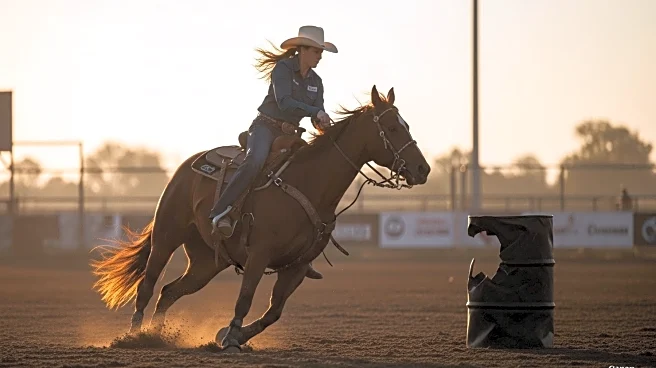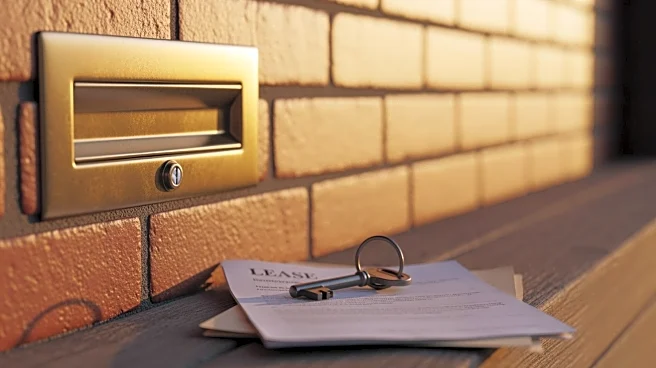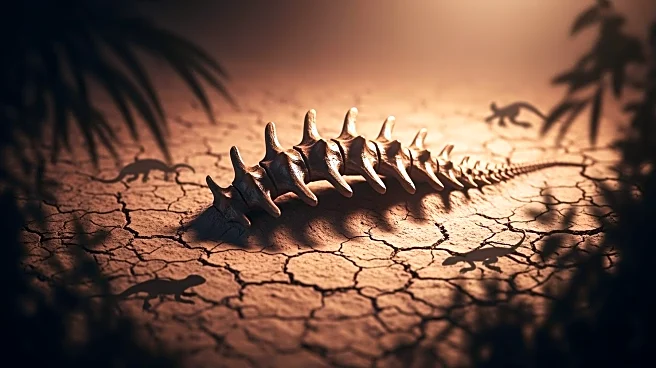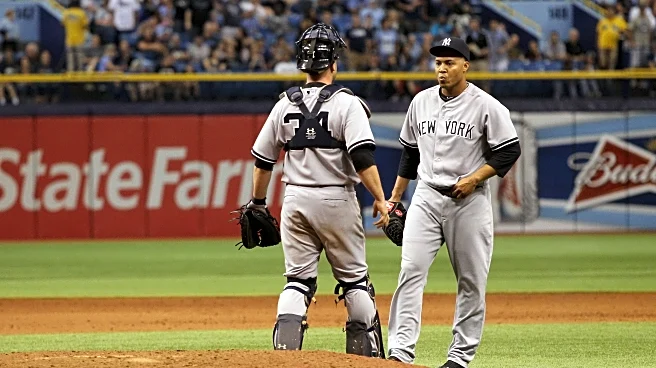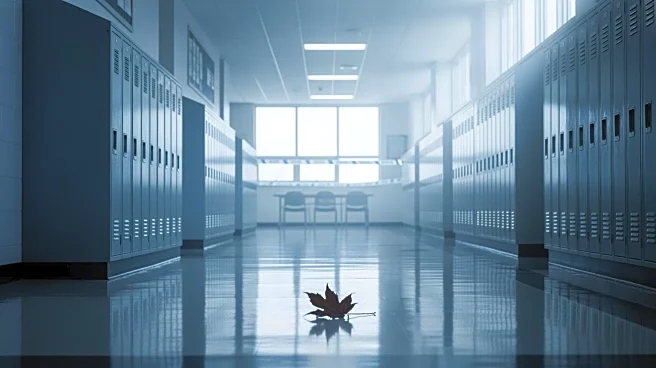What's Happening?
World Champion barrel racer Fallon Taylor experienced a fall during her run at the Tri-State Rodeo in Fort Madison, Iowa. Her horse, Kooter, tripped, causing both to flip and resulting in Taylor being thrown from the saddle. Although both Taylor and her horse quickly exited the arena, they sustained minor injuries. Taylor's previous back injury from 2009 flared up due to the fall. This incident marks her third accident in 45 days, raising concerns about the risks involved in frequent rodeo participation without adequate recovery time. Taylor, who has been a prominent figure in the rodeo world, is currently ranked No. 42 in the world standings. Following the accident, she expressed on social media her intention to reevaluate her rodeo goals, emphasizing the need for safer participation.
Why It's Important?
Taylor's injury highlights the physical risks associated with competitive rodeo, particularly when recovery time between events is insufficient. Her decision to reassess her goals may influence other athletes in the sport to prioritize safety and well-being. As a respected figure in the rodeo community, Taylor's advocacy for helmet safety and her potential shift in focus could lead to increased awareness and changes in safety practices within the sport. Her situation underscores the broader issue of athlete safety in high-risk sports, potentially prompting discussions on regulations and support systems for competitors.
What's Next?
Taylor plans to recover and return to the arena in 2026, with a more selective approach to her participation in rodeos. Her future involvement may focus on events with safer conditions, potentially influencing the rodeo community to prioritize safety standards. As the regular season concludes on October 1st, Taylor's decisions could impact her standing and future career trajectory. Her advocacy for safety may continue to resonate, encouraging other athletes to consider similar adjustments in their competitive strategies.
Beyond the Headlines
Taylor's experience and advocacy for helmet safety may lead to broader cultural shifts in the rodeo world, emphasizing the importance of protective gear and safety measures. Her story serves as a reminder of the resilience required to overcome significant injuries, inspiring others in the sport to prioritize health and safety. The potential long-term impact of her advocacy could contribute to evolving safety standards and practices in rodeo competitions.
